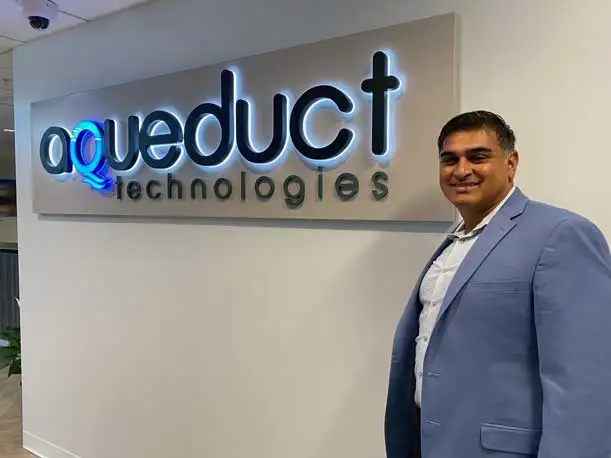Partners: Cisco-Splunk Deal Is An Enterprise AI Security Game Changer
‘This is an exciting acquisition that is going to help Cisco differentiate itself from the rest of the industry,’ says Aqueduct Technologies CEO Manak Ahluwalia. ‘We think it is a sizable revenue and growth opportunity for us as loyal and happy Cisco partners.’

Cisco’s blockbuster $28 billion acquisition of Splunk — which officially closed Monday — is an enterprise security and AI game changer that could pave the way for networks that can automatically stop threats from bad actors in real time.
“This is an exciting acquisition that is going to help Cisco differentiate itself from the rest of the industry,” said Manak Ahluwalia, CEO of Aqueduct Technologies, a Canton Mass, Cisco partner. “We think it is a sizable revenue and growth opportunity for us as loyal and happy Cisco partners.”
The deal combines Splunk’s leadership in security observability with Cisco’s own robust application management and observability stack with AppDynamics and Thousand Eyes, said Ahluwalia.
“The expectation is that once Cisco Splunk identifies a potential security and performance issue it will self-heal and self-secure,” said Ahluwalia (pictured above). “That is the exciting thing for us to bring something like that to market.”
The deal reinforces Cisco’s position as the network market leader, said Ahluwalia. “Every end user experience is predicated on how the underlying network performs and every cybersecurity incident at some point in time touches the network. The network is as critically important as ever for an organization’s security and end user experience. With the rise of AI capabilities if you know there is a potential security event or an end user performance issue you can resolve it in real time.”
Cisco billed the closing of the Splunk deal as a “new day for data” that will revolutionize the way companies harness data to connect and protect every aspect of their organizations.”
“The more data you have the more powerful your AI capabilities are going to be,” said Cisco CEO Chuck Robbins in an interview on CNBC after Cisco announced the close of the acquisition. ”We think between their (Splunk’s) data platform and our technologies we can bring the ability for the enterprise customer to actually deploy and gain benefits from AI workloads in a very unique way.”
As for the combination of Cisco’s SIEM with Cisco’s Extended Detection and Response Capabilities, Robbins said it will give customers “the ability to identify threats and dynamically react to those threats” in real time.
“As the bad actors become better at utilizing AI to launch attacks, we think the real time correlation of disparate events that together might indicate a security problem is a critical capability that our customers need. Between our technologies and their (Splunk) data platform, we believe we can actually deliver that to our customers.”
As for Cisco’s recent alliance with Nvidia, Robbins said Nvidia CEO Jensen Huang approached Cisco because of Cisco’s “understanding” of how enterprise customers “deploy applications and build” their infrastructure.
Huang felt Cisco was the right partner to take Nvidia CPUs to “create integrated stacks” to simplify the deployment of advanced AI workloads for customers, said Robbins. “That is what you are going to see from us over the next three to six months,” said Robbins.
Bob Venero, CEO of Fort Lauderdale, Fla.-based Future Tech Enterprise – No. 76 on the SP500, said he sees the deal as a potential seminal moment in the battle to stop threats from bad actors leveraging AI and big data.
“Cisco is maturing into a software company just like Nvidia is,” said Venero. “Its roots are as a hardware company. The secret sauce is in the software and the software is obviously going to take advantage of the AI capabilities at the chip set level. Cisco is going to have to capitalize on what the software will be able to do for them. Nvidia is the grandfather of AI and now all the other ecosystem partners are coming to align and partner with them to enhance their AI capabilities and their businesses.”
Venero said he sees Cisco’s strength as a networking hardware provider critical to its future. “Making sure you have that hardware platform is important,” he said.
Cisco, like all companies, faces the threat of bad actors using AI to attack organizations, said Venero. “The bad actors have access to the same AI tools,” he said.
“We see a lot of companies releasing statements about AI and AI value but this is going to come down to the partner community integrating all these different offerings into something that will benefit customers,” he said. “Organizations like Cisco and Nvidia need to rely on the channel to drive their solutions forward more than ever before because the technology stacks are much more convoluted and complicated than they have been in the past. This is a great opportunity for the channel to show its ability to support multiple OEMs to support heterogenous environments.”